
Note: this blog is about the Public Health England COVID-19 guidance last updated on 31 March 2020.
Regardless of how old you are, where you live, what your background is, or anything else, you will be aware of the current global crisis that is COVID-19. Our usual realms of normal society have ground to a halt, and within the last few weeks we have all had our lives turned completely upside down as we are faced with juggling zoom conferences, lack of PPE, cancelled exams and events, and families all stuck under one roof.
Even those who continue to go to work as they are unable to do so remotely are experiencing an entirely different lifestyle to their usual. Key workers under enormous pressure, empty commutes, shops and restaurants, pubs and gyms – all closed. Stillness. Regardless of who you are, this pandemic has changed our daily lives, and this can really impact on our mental health and wellbeing, not to mention the uncertainty, financial hardship, and potential loss and suffering we are all at risk of.
Having recognised this, Public Health England has issued some formal guidance on the mental health and well-being aspects of the coronavirus. The guidance will be updated in line with the changing situation. The article provides general advice on well-being for the public that we are perhaps more used to hearing, but applies them to particular difficulties for the lockdown period, as well as suggesting wider guidance on how to protect yourself and others, and actions to take if you think you may have contracted the virus.
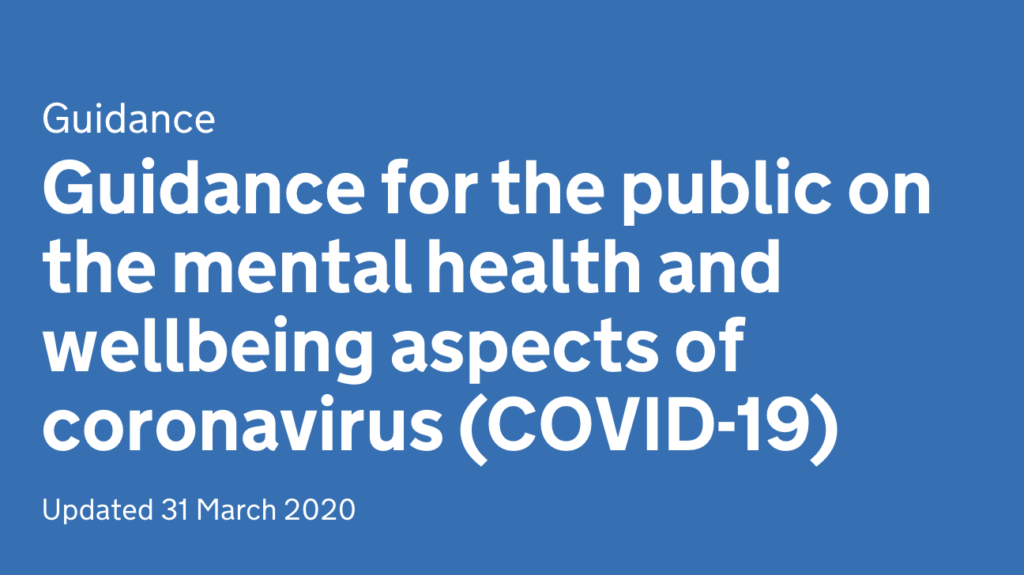
Public Health England has issued guidance on the mental health and well-being aspects of the coronavirus.
Mental health and wellbeing
The guidance starts with a general advice about mental health and wellbeing, where it makes some general suggestion such as connecting with others, talking about concerns, maintaining good physical health, sticking to a healthy sleep cycle, managing difficult emotions, moderating media intake, sticking to a routine, doing things we enjoy, having goals and purpose etc.
These suggestions all tie together with the model of ‘Five Ways to Wellbeing’ (Connect, Be Active, Take Notice, Learn and Give) that you may be familiar with, as discussed by many mental health charities such as MIND. These were originally developed by the New Economics Foundation over 12 years ago and are continually being updated.
The ‘Five Ways to Wellbeing’ were developed as a tool to improve population mental health and wellbeing. The purpose of these 5 categories of action is to act as a preventative measure for mental illness by promoting mental wellbeing. The points suggested in PHE’s COVID-19 wellbeing guidance fit neatly into these categories
- The guidance recommends that we keep our minds active, e.g. “reading, writing, playing games, doing crossword puzzles, sudokus, jigsaws or drawing and painting”, and that we set goals, giving each day some sense of purpose and achievement when tasks are completed. These both fall under the ‘Learn’ category of wellbeing.
- Guidance to think about our new daily routine, and to take time to relax and focus on the present, with suggestions of mindfulness and meditation, as well as suggestions to talk about your worries, look after your sleep and do things you enjoy, encompass the Take Notice aspect.
- In turn, the Public Health England guidance suggests we should try even harder to connect with others, as maintaining relationships with people you trust is important for your mental wellbeing. The guidance encourages the population to stay in touch with friends and family via telephone, video calls or social media, instead of meeting in person, as a result of current social distancing rules.
- Another of the 5, Staying Active, has its own challenges under current circumstances, with the lockdown enforcing people to stay at home as well as closing gyms and cancelling sports fixtures. The guidelines encourage the public to exercise, and of course we can now take advantage of the newly updated (on 11th May 2020) social distancing rules, which allow us to exercise as often as we wish.
The New Economics Foundation (previously mentioned developers of the Five Ways to Wellbeing) have recently published updated advice specific to looking after yourself and others during the coronavirus crisis. This applies each category to the current crisis and gives solutions in line with current restrictions. Their advice is not dissimilar to PHE’s national guidance.
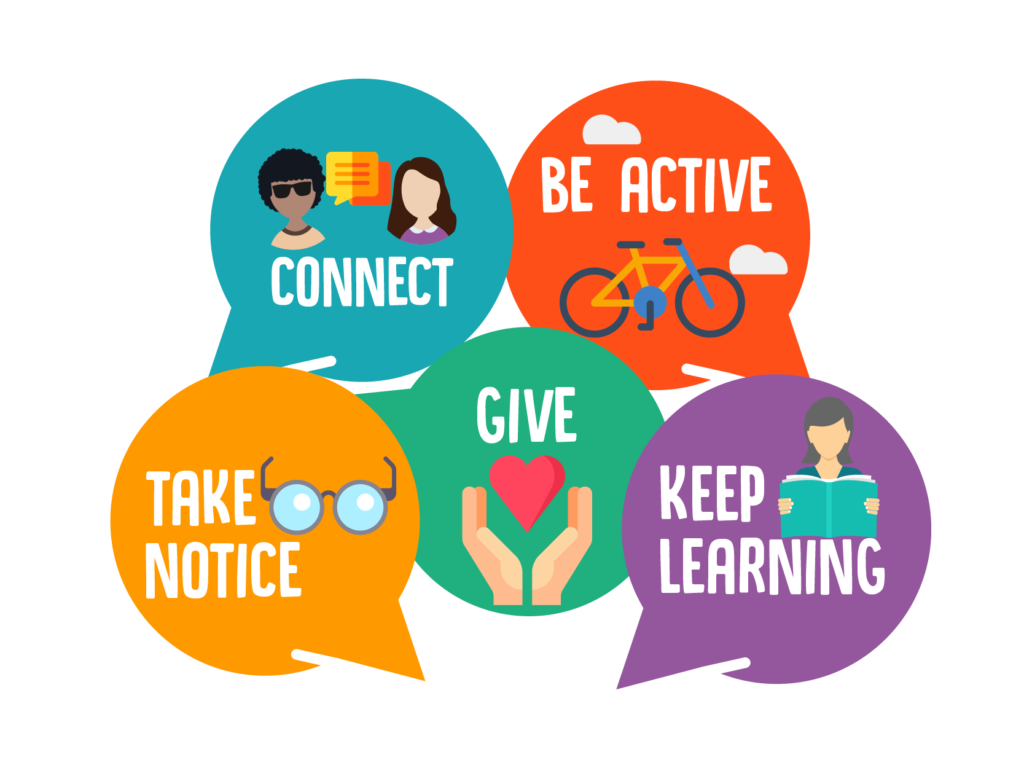
The ‘Five Ways to Wellbeing’ (Connect, Be Active, Take Notice, Learn and Give) will be a useful way for many people in the population to stay mentally and physically healthy during the lockdown.
Lockdown challenges
The PHE guidance also discusses some issues that may arise for people staying at home and gives solutions and suggestions for who to contact.
Supplies, financial concerns, and caring for vulnerable individuals can all be difficult practicalities when we are asked to stay at home. There is a huge disparity between each individual’s home life, and so enforcing this ‘stay at home’ policy can really impact individuals in a plethora of ways. The guidance is filled with hyperlinks to many services that could help people manage their individual struggles, such as the Citizen’s Advice Bureaux and Carers UK. There are multiple signposts throughout the guidance to the COVID-19 pages on the NHS website, and encouraging individuals to contact NHS 111 if they are concerned about their own symptoms.
The guidance also offers explanation about how some short-lived symptoms of anxiety can be physical, such as faster, irregular or more noticeable heartbeat, feeling lightheaded and dizzy, headaches, chest pains or loss of appetite. The guidance acknowledges that it can often be difficult to know what is causing these symptoms, particularly as there could be some overlap in these quite common symptoms and that of the coronavirus.
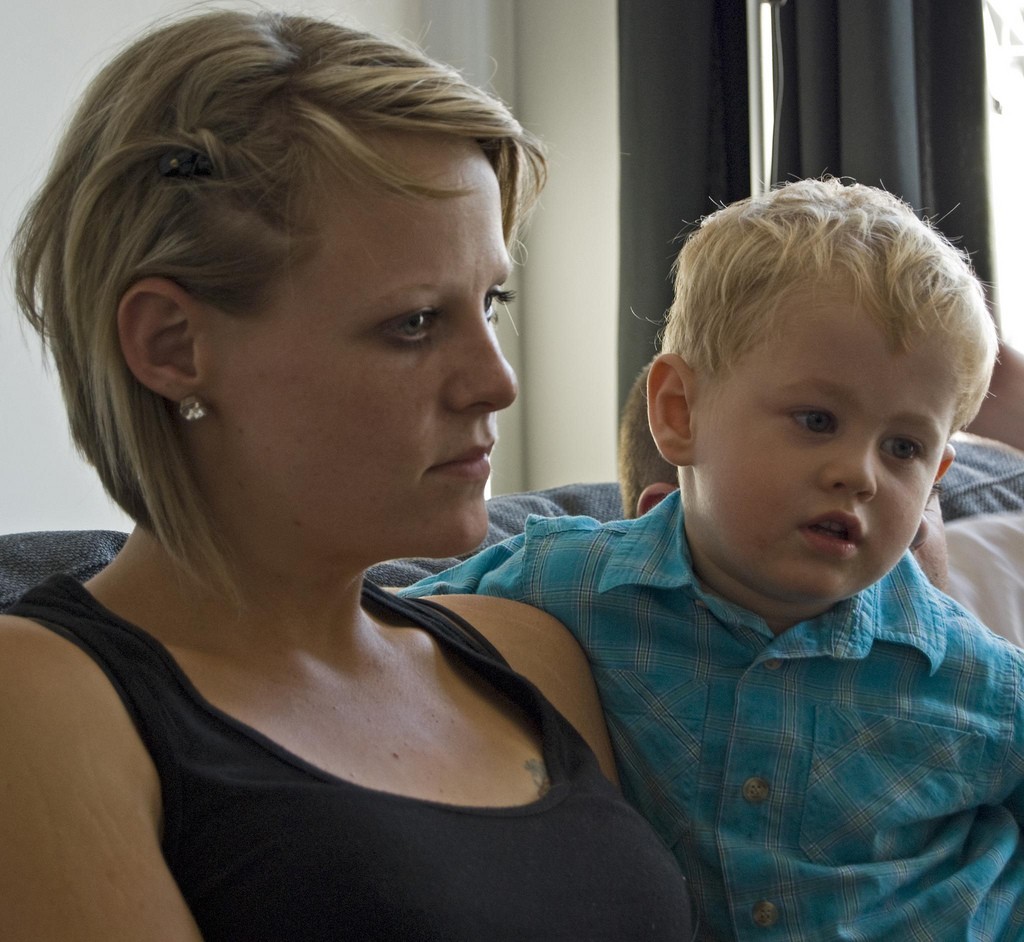
Anxiety UK have developed a range of useful resources and support under their #coronanxiety banner
Advice for those with pre-existing medical conditions
It can be difficult to access treatment, support or prescriptions whilst under lockdown. The guidance urges people to continue taking their regular medication and engaging with their services through telephone or online appointments where available.
There is also tailored advice for the current situation for those suffering from pre-existing mental health problems. This guidance comes from MIND. It can be difficult to manage certain behaviours in such circumstances, such as:
- Obsessive hand washing / hygiene / fear of infection. The advice is to avoid rereading information that is personally unhelpful, setting time limits on hand washing and making sure you are distracted after doing so. Over washing of hands could lead to dryness and cuts, which could leave individuals at a higher risk of infection.
- Managing panic and anxiety. People who are already known to experience panic attacks may be struggling in light of the current crisis, and the guidance provides links to MIND’s distractions such as games and puzzles, self care and breathing exercises. Those prone to health anxieties in particular must limit their news intake and only do so from reliable sources.
However, it is important that we are careful not to over-medicalise what could be an entirely normal response to the situation, as it is very natural to be feeling distressed by current affairs.
- Managing feelings of being trapped or claustrophobia (“cabin fever”) is extremely common when we are being given no option but to stay at home. Advice is to try and get outside once a day if possible, as well as using windows and doorsteps to get some fresh air. It is also suggested to switch which rooms in the house you spend time in.
- People with autism, learning disabilities or other neurodevelopment conditions may be finding the outbreak even more stressful as it can mean a great deal of change and disruption to daily routines. There is a link to PHE’s own ‘Easy Read Guidance’, which may be of use to some.

People with autism, learning disabilities or other neurodevelopment conditions may be finding the outbreak even more stressful as it can mean a great deal of change and disruption to daily routines.
Conclusions
The current global pandemic is affecting everyone’s life on every scale. The virus is taking many lives, and all of us are facing a myriad of challenges we may never have prepared for before; financial, physical or mental. It is important to acknowledge how much of an impact it is going to have on society, and to know that our boredom comes from privilege.
Having said this, it is justified to be upset, anxious, deflated or angry about the perhaps comparatively smaller aspects of life this has affected. In her Guardian article, Linda Gask, a Professor of Psychiatry at the University of Manchester, said that “we are sad because of loss: of our normal lives, the comforting presence of our families [and friends]… and for some of us, our livelihoods and those we love. The sadness of lockdown has something in common with grief”, and that “grief is a normal reaction to loss”.
Whilst there are many of us lucky enough to be alive and well, in a warm house with our loved ones, eating well and going on our daily walks; this does not mean a year 13 student (missing out on their A-level exams, Leavers’ Ball, last day of school) should feel any less gutted about things not playing out how they had perhaps always envisaged, hoped or imagined. It is natural to have not wanted to come home early from your year abroad, or not wanted that conference you worked so hard to prepare for to be cancelled, to not be able to go on the holiday you had been saving up for all year, or had to have left the city you spent the last 3 years studying in months earlier than expected; without a proper chance to say goodbye to the people who made your experience at university what it was. We can understand the gravity of the situation as a whole, knowing that there are people who have it worse than us, and still let ourselves feel sorry for our own losses, no matter how minor they may comparatively feel.
Much in the same way, we must value our mental health as highly as the next person’s and take extra steps to ensure we are protecting our wellbeing. Public Health England’s guidance is an excellent place to start, and provides many other useful resources tailored for each individual’s priorities.
![“We are sad because of loss: of our normal lives, the comforting presence of our families [and friends]… and for some of us, our livelihoods and those we love. The sadness of lockdown has something in common with grief”, and “grief is a normal reaction to loss”.](https://www.nationalelfservice.net/cms/wp-content/uploads/2020/02/shutterstock_1585787104.jpg)
“We are sad because of loss: of our normal lives, the comforting presence of our families [and friends]… and for some of us, our livelihoods and those we love. The sadness of lockdown has something in common with grief”, and “grief is a normal reaction to loss”. – Linda Gask in The Guardian, Apr 2020.
Strengths and limitations
The PHE guidance is a great tool for addressing concerns about mental wellbeing directly related to the current unprecedented situation with COVID-19. The advice is well presented and manageable, with explanations as to why each factor is important for wellbeing, as well as applying it to the current lockdown situation (as of 31st March 2020).
The guidance has specific advice for different groups of people such as the elderly, carers or those who suffer from pre-existing health conditions, but it does not cover many specific groups of the population who are likely to be most affected by the coronavirus. People facing violence and abuse, people from Black, Asian and minority ethnic communities, and people living with existing mental health difficulties will be most affected and will need the most help. A new COVID-19 Mental Health Briefing published today by Centre for Mental Health forecasts the likely impacts of the Covid-19 pandemic on mental health.
For specific advice on the coronavirus and children’s mental health, Dr Jon Goldin, Consultant Child and Adolescent Psychiatrist, working at Great Ormond Street Hospital, has discussed some tips for self-care alongside how much information we should be exposing children to on a recent ACAMH podcast.
As the New Economics Foundation report (2020) tell us: it is “important to recognise that wellbeing is only possible after basic needs are met. Wider structural changes need to happen to ensure people’s incomes, homes and lives are secure during this time. Until this happens, many won’t be able to even begin to think about things like Five Ways to Wellbeing”.
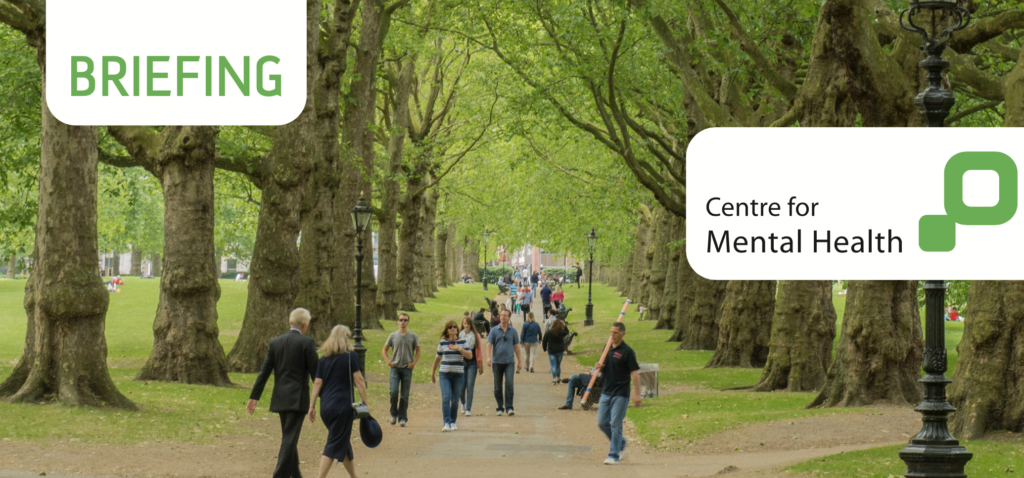
New analysis from Centre for Mental Health indicates at least half a million more people in UK may experience mental ill health as a result of Covid-19.
Implications
Greenberg and colleagues in their recent study ‘Managing mental health challenges faced by healthcare workers during COVID-19 pandemic’, say that the current situation has put healthcare workers particularly in a position that “may cause some to experience moral injury or mental health problems.”
This could be true for all members of the population, as we are all facing new traumas and challenges. The Greenberg study (2020) splits measures to protect wellbeing into three categories of moral injury, early support and after care. Similarly, such an approach could be taken to protect the general population.
Public Health England’s guidance itself acts as a preventative, giving advice for early support and intervention. However, our mental health services need to be sufficiently prepared in order to deal with the after care of the crisis, as many people are likely to be affected in some form.
In the meantime, all we can do is try our best to restore some sense of normality, give ourselves a purpose and routine, and value our own mental wellbeing. Take time for yourself, spend time with others. Take care of yourself and those around you and make time for things that make you happy. Stay safe for now, this will pass.
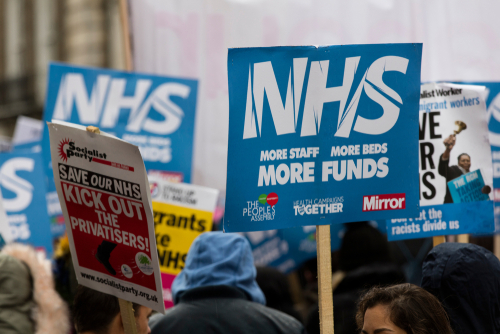
Our mental health services need to be sufficiently prepared in order to deal with the after care of the crisis, as many people are likely to be affected in some form.
Links
Primary paper
Guidance for the public on the mental health and wellbeing aspects of coronavirus (COVID-19). Public Health England guidance. Updated 31 March 2020
Other references
MIND (2020) Five ways to wellbeing. Mind website, last accessed 14 May 2020.
Aked, J. Thompson, T. (2011) Five ways to wellbeing: New applications, new ways of thinking. New Economics Foundation, 2011
Stephens, L. (2020) Five ways to wellbeing: at a time of social distancing. New Economics Foundation, 2020.
Gask, L. (2020) Forget lockdown goals: trying to learn a language or get fit in a crisis won’t make you happier. The Guardian, 8th Apr 2020.
Greenberg, N., Docherty, M., Gnanapragasam, S., & Wessely, S. (2020). Managing mental health challenges faced by healthcare workers during covid-19 pandemic. BMJ, 368. https://doi.org/10.1136/bmj.m1211
Photo credits
- Photo by Michael Dziedzic on Unsplash
